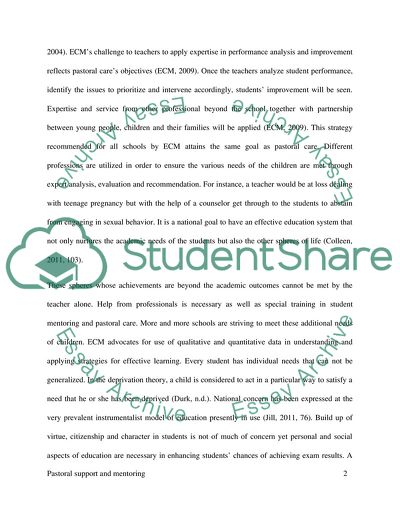Cite this document
(Pastoral Care and Support Case Study Example | Topics and Well Written Essays - 3500 words, n.d.)
Pastoral Care and Support Case Study Example | Topics and Well Written Essays - 3500 words. https://studentshare.org/education/1756512-pastoral-support-and-mentoring
Pastoral Care and Support Case Study Example | Topics and Well Written Essays - 3500 words. https://studentshare.org/education/1756512-pastoral-support-and-mentoring
(Pastoral Care and Support Case Study Example | Topics and Well Written Essays - 3500 Words)
Pastoral Care and Support Case Study Example | Topics and Well Written Essays - 3500 Words. https://studentshare.org/education/1756512-pastoral-support-and-mentoring.
Pastoral Care and Support Case Study Example | Topics and Well Written Essays - 3500 Words. https://studentshare.org/education/1756512-pastoral-support-and-mentoring.
“Pastoral Care and Support Case Study Example | Topics and Well Written Essays - 3500 Words”. https://studentshare.org/education/1756512-pastoral-support-and-mentoring.


